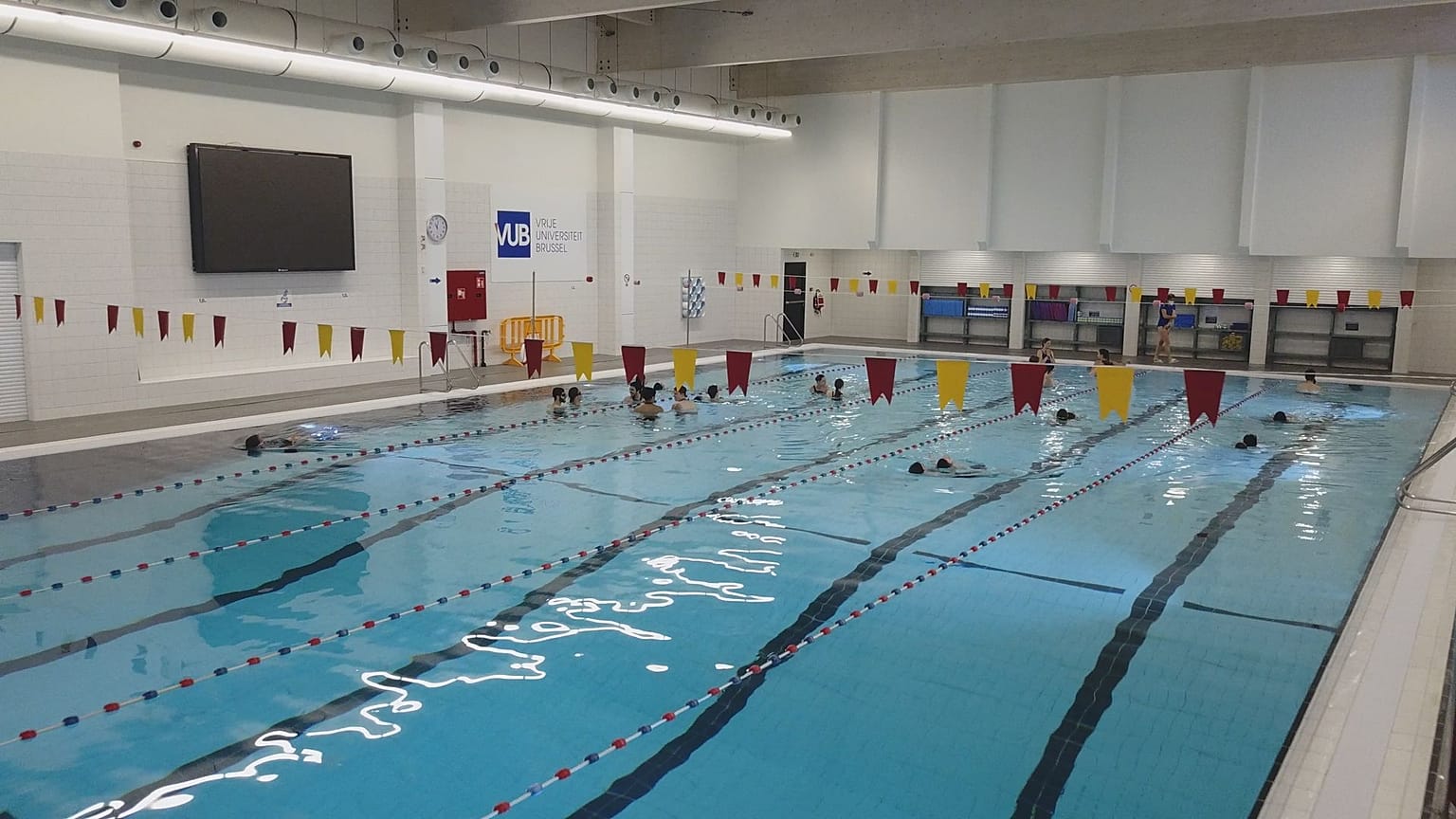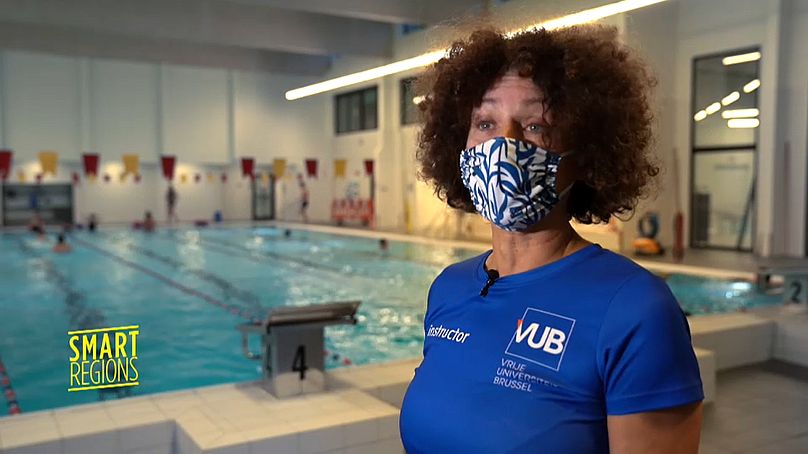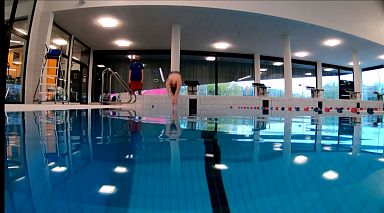The Free University of Brussels has created a pool that uses technology to help minimise its impact on the environment. It produces less CO2 emissions, uses less energy, less water and it's revolutionising the swimming experience.
The most sustainable swimming pool in Brussels is located at the VUB, the Free University of Brussels, at its campus in Etterbeek. The facility was originally built in 1989, but problems related to its structure and energy performance were mounting after so many years of use. The decision was made to renovate the pool in the most ecological way possible.
 ADVERTISEMENT
ADVERTISEMENT
 ADVERTISEMENT
ADVERTISEMENT
After a few years of work, the pool has now become a symbol of technology limiting the impact of human activity on the environment. It has five lanes and a seven by 12.5 metre instruction pool with a moveable floor, allowing classes to be taught at different depths.
The new facility also produces 500 tonnes less CO2 a year than it did before.
By treating and collecting rain and wastewater, the pool consumes 70% less water than an average public swimming pool. That's an average of 10 million litres of water saved a year. Its energy consumption has been minimised thanks to efficient technology, like the co-generation plant, a system that produces both electricity and heat from the combustion of biomass.
Sven De Bruyn is an engineer at the Free University of Brussel and he says air handling units have built in energy recuperation that use heat pumps. Effectively, the energy they get out of the air is put back into the pool. He describes the co-generation plant as "win-win" because it combines heat production and electricity production.
60% of the electricity produced by the co-generation system is used for the pool, the other 40% is for the rest of the campus.
The total investment for the project amounts to 7,800,000 euros, over two million of which came from the EU Cohesion Policy.
The pool is now also financially stable, thanks to the rise in people able to use it. The head of the Sporting Infrastructure Administration Department, Dirk Van De Wiele, says they have doubled the pool's capacity, "instead of 80000 people (..) we can service 150 000 people a year."
The pool also provides a useful service to the local community. A helpful hand for Brussels, which has seen a decrease in swimming pools over recent decades due to old pools closing and renovations being postponed due to high costs.
The teachers at this pool feel swimming and teaching conditions have been dramatically improved. As Kristine De Martelaer, a professor of Physical Education, says:
"To teach here is easier than teaching in another pool.
"We were so happy that we have a pool as a living lab and it's the quality of the water, it's like softer than in other pools.
"It's also the quality of the air."
By combing the best of technology, ecology, and a city's desperate need for more pools, the Free University of Brussels' sports facility is going down swimmingly.

















